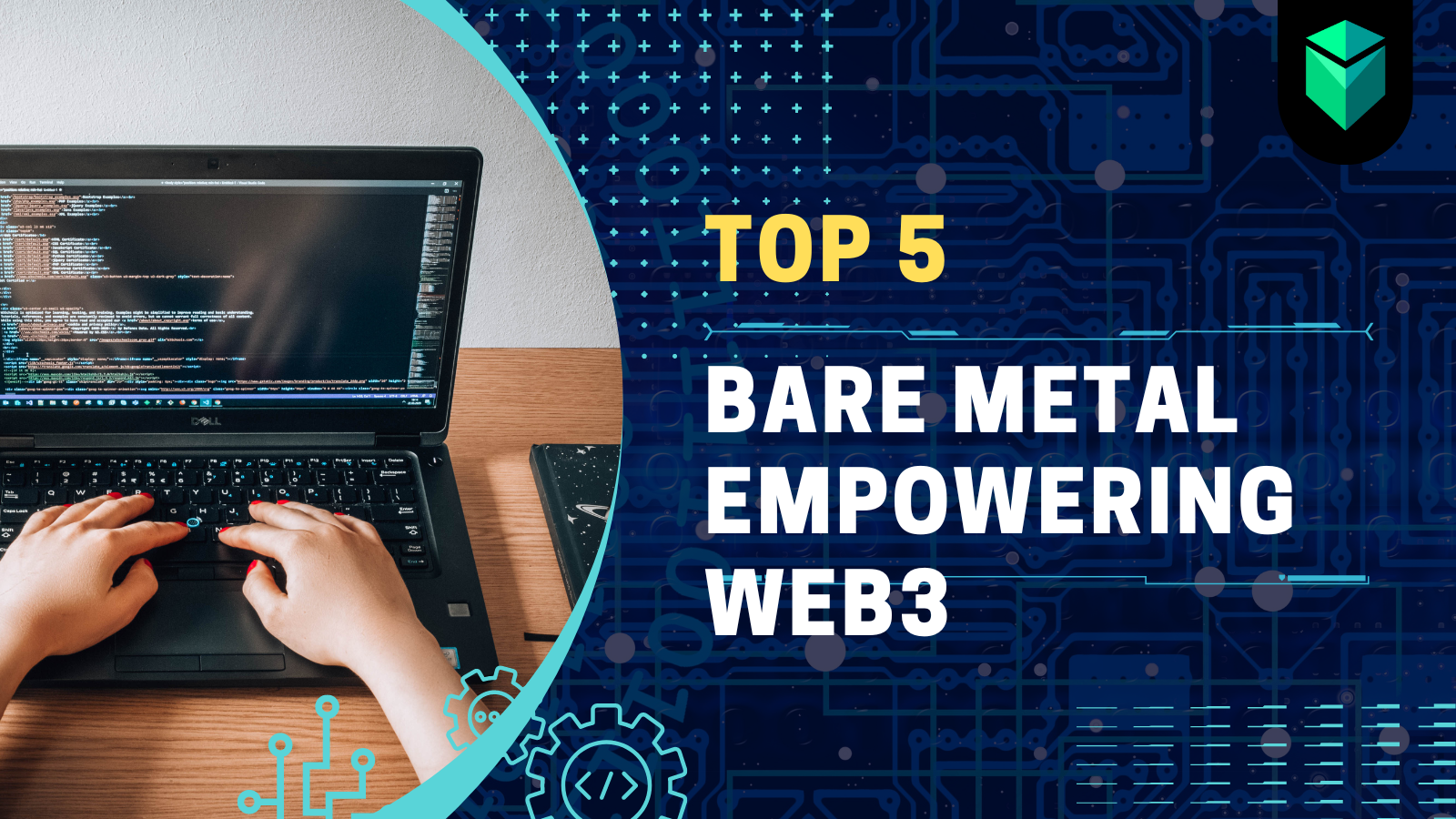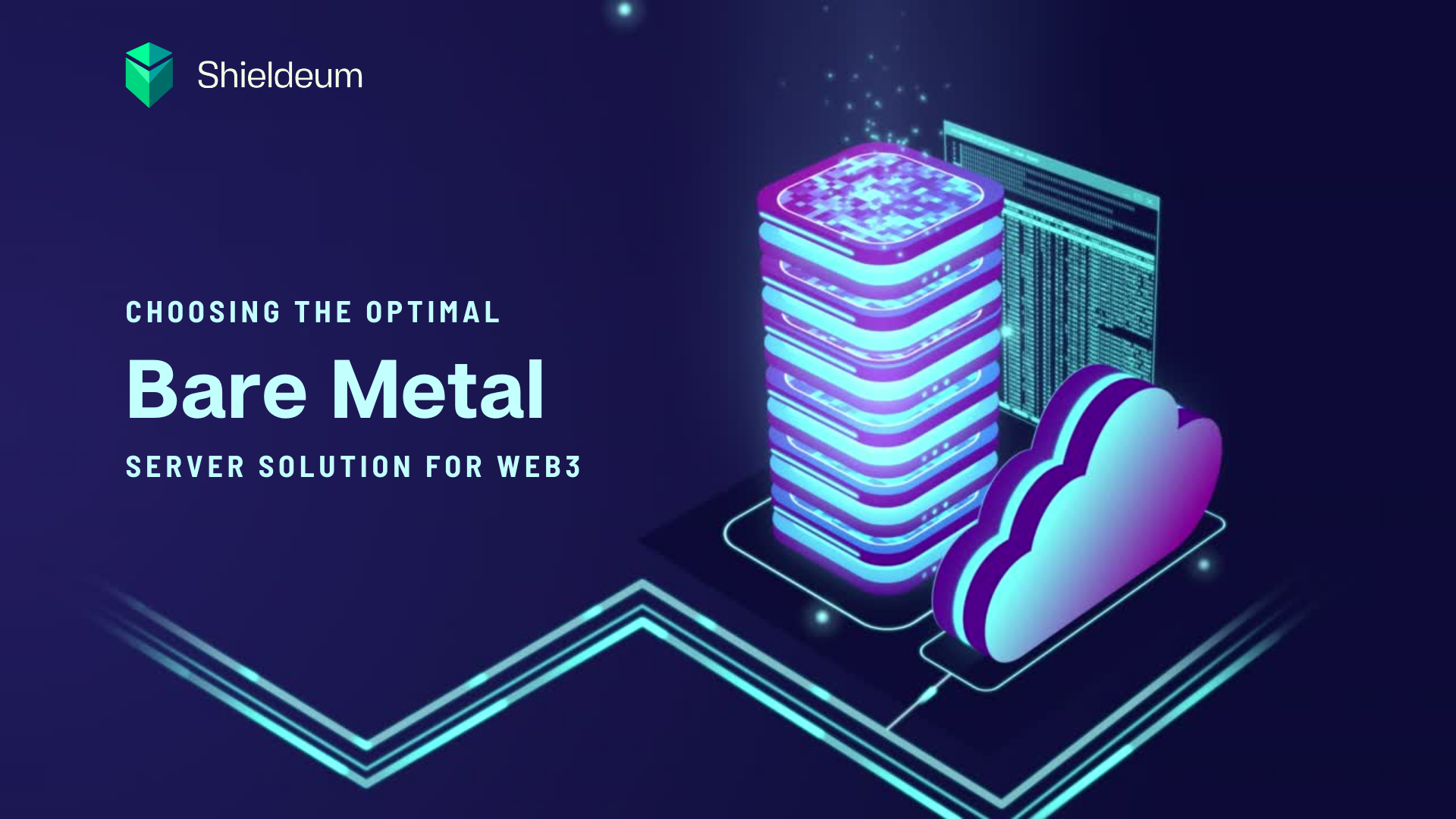What is Bare Metal for Web3 produced by a DePIN?
Bare metal servers are physical computers dedicated entirely to a single customer. Unlike virtual servers, which are hosted on shared hardware and run multiple virtual machines, bare metal servers provide the full hardware resources directly to the user. This means no sharing of CPU, memory, or storage with others, resulting in high performance and reliability.
How Do Bare Metal Servers Work?
- Dedicated Hardware: When you rent or own a bare metal server, you get the entire machine. This includes all the server's CPUs, RAM, storage, and network resources.
- Direct Control: You have complete control over the server's operating system and applications. This allows for customized configurations and optimizations specific to your needs.
- High Performance: Since you are not sharing resources with other users, the performance is consistent and predictable. This makes bare metal servers ideal for high-demand applications like large databases, big data processing, and high-traffic websites.
- Enhanced Security: With no other tenants on the same hardware, the risk of security breaches from neighboring users is eliminated. This makes bare metal servers a popular choice for sensitive data and applications.
How Would Bare Metal Servers Work in a DePIN Network?
DePIN stands for Decentralized Physical Infrastructure Networks. These networks use blockchain and decentralized technologies to manage and operate physical infrastructure like servers, networks, or even transportation systems. Here’s how bare metal servers could integrate into a DePIN network:
-
Decentralized Ownership: In a DePIN setup, bare metal servers can be owned by multiple stakeholders instead of a single entity. Each stakeholder has a share in the server's ownership and benefits from its usage.
-
Resource Allocation: Using blockchain technology, the resources of bare metal servers can be allocated and managed efficiently. Smart contracts can automate agreements and resource allocation based on predefined rules.
-
Transparency and Trust: Blockchain ensures transparency in how the servers are used and managed. All transactions and resource allocations are recorded on the blockchain, providing an immutable and verifiable log.
-
Optimized Utilization: DePIN can optimize the utilization of bare metal servers by dynamically distributing workloads based on demand and server availability. This ensures that the infrastructure is used efficiently, reducing waste and costs.
-
Increased Reliability: Decentralized networks can improve reliability by avoiding single points of failure. If one server goes down, the network can redistribute the load to other servers, ensuring continuous operation.
Example Use Case in a Web3 Company
Imagine a Web3 company that provides decentralized finance (DeFi) services, relying on a network of bare metal servers integrated into a DePIN network.
-
Smart Contract Execution: Bare metal servers handle the execution of complex smart contracts, which require significant computational power and low latency. The high performance of bare metal servers ensures fast and reliable execution of these contracts.
-
Decentralized Storage: The company can use the servers to store decentralized data securely. Blockchain technology ensures that data is stored in a transparent and immutable manner, providing enhanced security and trust for users.
-
Token Transactions: With the help of bare metal servers, the company can process a large number of token transactions quickly and efficiently. The dedicated resources of bare metal servers ensure consistent performance during high-traffic periods.
-
Optimized Resource Use: The DePIN network can dynamically allocate server resources based on the company's needs. For example, during a token sale event, more computational power can be directed towards handling the increased transaction load.
-
Enhanced Security: The decentralized management provided by the DePIN network, combined with the dedicated nature of bare metal servers, significantly reduces the risk of attacks and unauthorized access, which is crucial for maintaining trust in Web3 applications.
By integrating bare metal servers into a DePIN network, Web3 companies can achieve the high performance and reliability needed for their services while benefiting from the transparency, efficiency, and security of decentralized management.
Shieldeum's State-of-the-Art Bare Metal Offerings
Shieldeum is poised to revolutionize the infrastructure for Web3 companies with its state-of-the-art bare metal offerings. By providing dedicated hardware that ensures maximum performance, security, and control, Shieldeum’s bare metal servers are designed to meet the high demands of decentralized applications and services. These servers will be integrated into a Decentralized Physical Infrastructure Network (DePIN), enabling optimal resource allocation, enhanced transparency, and increased reliability. With Shieldeum’s cutting-edge bare metal solutions, Web3 companies can focus on innovation, confident in the robustness and efficiency of their underlying infrastructure.


